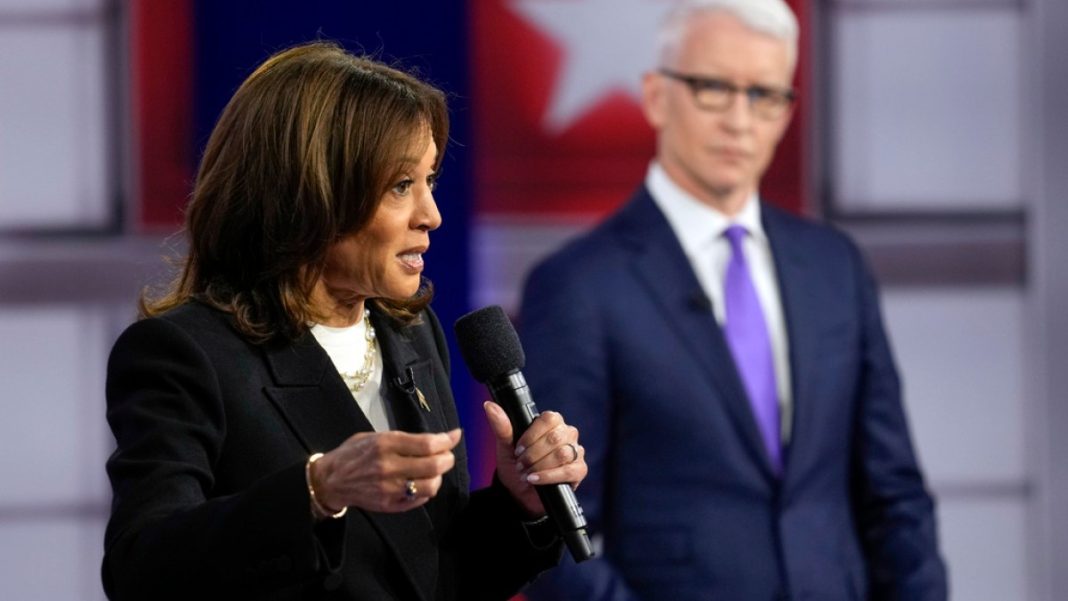Kamala Harris Signals Openness to Supreme Court Reform Amid Abortion Rights Controversy
In a bold move that could reshape the landscape of American jurisprudence, Vice President Kamala Harris has indicated her willingness to consider reforms to the United States Supreme Court. This comes in the wake of the court’s contentious decision to overturn the federal right to abortion, a ruling that has sparked outrage and concern among many Americans. Speaking at a CNN town hall in Pennsylvania, Harris, who is also the Democratic candidate for the presidency, hinted at potential changes but kept the specifics under wraps.
During the town hall, Harris stated, “I do believe that there should be some kind of reform of the court, and we can study what that actually looks like.” This statement reflects a growing sentiment among Democrats who feel that the Supreme Court, particularly after its recent rulings, has strayed too far from the values of the American public. The Vice President’s comments come as part of a broader discussion about governmental reforms, including the possibility of ending the filibuster—a legislative tactic that has been used to stall congressional debate.
Harris has previously expressed support for eliminating the filibuster, which requires a supermajority of 60 votes in the Senate to advance most legislation. During the town hall, she emphasized that any reforms to the Supreme Court and the filibuster are rooted in the public’s frustration over the erosion of abortion rights. “If that’s not possible to codify it in the House, what do you do?” host Anderson Cooper asked. Harris responded candidly, “I think we need to take a look at the filibuster, to be honest with you.”
A Focus on Abortion Rights
The Supreme Court has faced increasing scrutiny, especially as it has shifted further to the right in recent years. Under former President Donald Trump, three conservative justices were appointed, solidifying a 6-3 conservative majority. This shift has had significant implications for reproductive rights, culminating in the 2022 Dobbs v. Jackson decision that overturned Roe v. Wade, a landmark ruling that had protected abortion rights for nearly 50 years.
Harris has been vocal about the impact of this decision, stating, “There is no question that the American people are increasingly losing confidence in the Supreme Court, in large part because of the behavior of certain members of that court and certain rulings, including the Dobbs decision.” She pointed out that the court’s actions have stripped away a fundamental right, leaving states to impose their own restrictions on abortion access, often leading to harsh bans in Republican-led areas.
“This is probably one of the most fundamental freedoms that we as Americans could imagine,” she added, emphasizing the importance of reproductive rights and the ability to make personal decisions about one’s own body.
Public Trust in the Court
The Supreme Court’s credibility has taken a hit, with public confidence plummeting following controversial decisions like Dobbs. A recent Pew Research Center poll revealed that 51 percent of respondents view the court unfavorably, marking a significant decline in trust. The perception of the court as increasingly conservative has also risen, with more people believing it wields too much power.
Scandals involving justices receiving gifts from wealthy donors have further eroded public trust. As Harris seeks to rally voters around the issue of abortion rights, she has also launched ads highlighting the stories of women adversely affected by the new restrictions, aiming to underscore the real-life consequences of the court’s decisions.
The Path Forward
While Harris’s remarks signal a willingness to explore reforms, the Democratic Party has been cautious about embracing drastic changes, such as expanding the number of justices. There are concerns that such moves could further politicize the court. President Joe Biden has also proposed reforms, including term limits for justices and stricter ethics rules, reflecting a growing frustration with the court’s direction.
However, turning these proposals into actionable policy will require bipartisan cooperation, a challenging task with the House of Representatives currently under Republican control. As Harris continues to address these issues on the campaign trail, she remains focused on galvanizing support among voters who are disillusioned with the current state of the Supreme Court and its impact on fundamental rights.
In a broader context, Harris’s comments at the town hall are part of a larger narrative about the future of American democracy and the role of the judiciary. As the 2024 election approaches, the conversation around Supreme Court reform and abortion rights is likely to remain at the forefront of political discourse, shaping the strategies of both parties as they seek to connect with voters.



